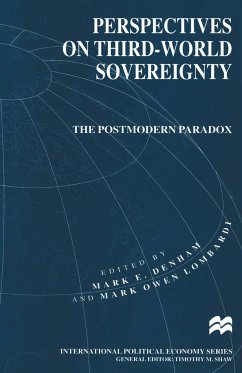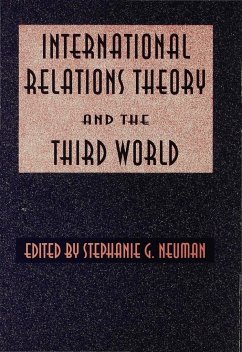
Soviet-Third World Relations in a Capitalist World
The Political Economy of Broken Promises

PAYBACK Punkte
19 °P sammeln!
Several aspects of Soviet Third-World relations in a capitalist world are looked at in this book. These include tracing the roots of the Third World within the Marxist tradition, and discussing Soviet attitudes to the capitalist world market as they have evolved from the Bolshevik era to today.














